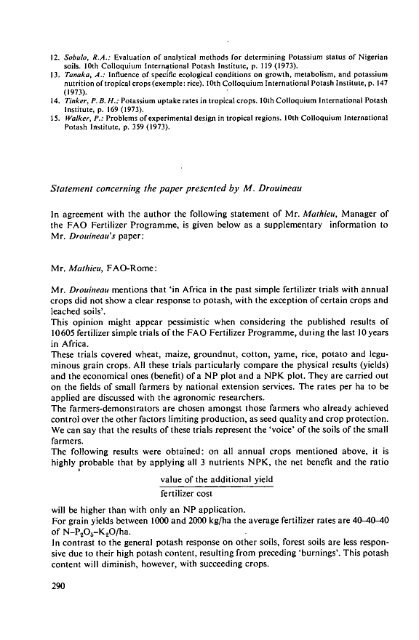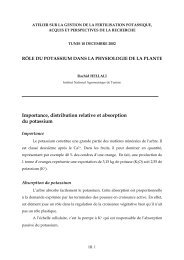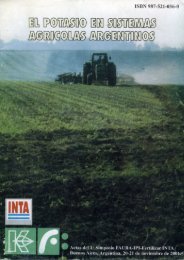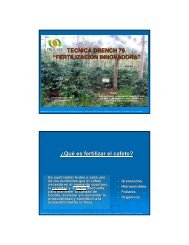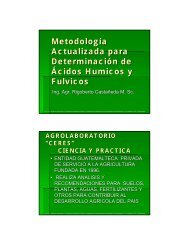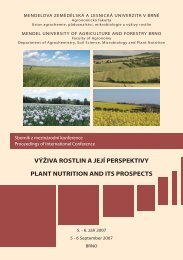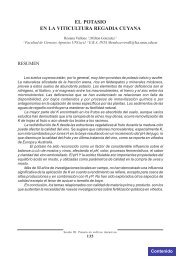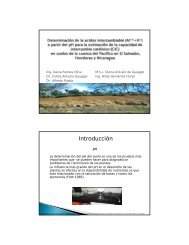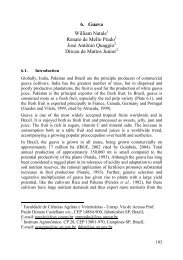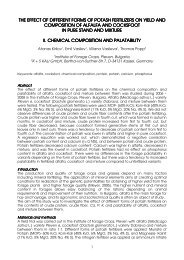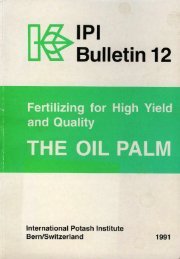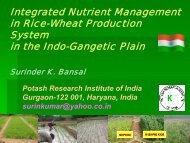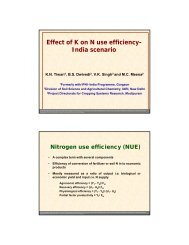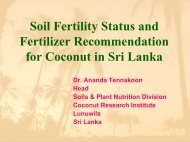Potassium Research and Agricultural Production - The International ...
Potassium Research and Agricultural Production - The International ...
Potassium Research and Agricultural Production - The International ...
You also want an ePaper? Increase the reach of your titles
YUMPU automatically turns print PDFs into web optimized ePapers that Google loves.
12. Sobulo, R.A.: Evaluation of analytical methods for determining <strong>Potassium</strong> status of Nigerian<br />
soils. 10th Col1oquium InterlUltional Potash Institute. p. 119 (1973).<br />
13. Tanaka. A.: Influence of specific ecological conditions on growth, metabolism, <strong>and</strong> potassium<br />
nutrition of tropical crops (exemple: rice). 10th Colloquium <strong>International</strong> Potash Institute, p. 147<br />
(1973).<br />
14. Tinker, P. B. H.: <strong>Potassium</strong> uptake rates in tropical crops. 10th Colloquium <strong>International</strong> Potash<br />
Institute, p. 169 (1973).<br />
IS. Walker, P.: Problems of experimental design in tropical regions. 10th Colloquium <strong>International</strong><br />
Potash Institute, p. 359 (1973).<br />
Statement concerning the paper presented by M. Drouineau<br />
In agreement with the author the following statement of Mr. Mathjeu, Manager of<br />
the FAO Fertilizer Programme, is given below as a supplementary information to<br />
Mr. Droujneau's paper:<br />
Mr. Mathjeu, FAO-Rome:<br />
Mr. Droujlleau mentions that "in Africa in the past simple fertilizer trials with annual<br />
crops did not show a clear response to potash, with the exception of certain crops <strong>and</strong><br />
leached soils'.<br />
This opinion might appear pessimistic when considering the published results of<br />
10605 fertilizer simple trials of the FAO Fertilizer Programme, dUling the last 10 years<br />
in Africa.<br />
<strong>The</strong>se trials covered wheat, maize, groundnut, cotton, yame, rice, potato <strong>and</strong> leguminous<br />
grain crops. All these trials particularly compare the physical results (yields)<br />
<strong>and</strong> the economical ones (benefit) of a NP plot <strong>and</strong> a NPK plot. <strong>The</strong>y are carried out<br />
on the fields of small farmers by national extension services. <strong>The</strong> rates per ha to be<br />
applied are discussed with the agronomic researchers.<br />
<strong>The</strong> farmers-demonstrators are chosen amongst those farmers who already achieved<br />
control over the other factors limiting production, as seed quality <strong>and</strong> crop protection.<br />
We can say that the results of these trials represent the 'voice' of the soils of the small<br />
farmers.<br />
<strong>The</strong> following results were obtained: on all annual crops mentioned above, it is<br />
highly probable that by applying all 3 nutrients NPK, the net benefit <strong>and</strong> the ratio<br />
,<br />
value of the additional yield<br />
fertilizer cost<br />
will be higher than with only an NP application.<br />
For grain yields between 1000 <strong>and</strong> 2000 kg/ha the average fertilizer rates are 40-40-40<br />
of N-P,05-K,o/ha.<br />
] n contrast to the general potash response on other soils, forest soils are less responsive<br />
due to their high potash content, resulting from preceding "burnings'. This potash<br />
content will diminish, however, with succeeding crops.<br />
290


